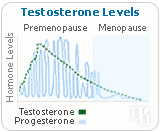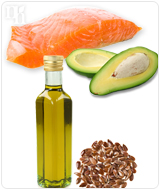You may not realize it, but testosterone has a major influence on your menopause symptoms. Although it is often referred to as the male hormone, it is just as important in the female body. Along with estrogen and progesterone, testosterone plays a vital role in the menopausal transition. Keep reading to discover how testosterone works and what affect it has on your menopausal symptoms.
How Testosterone Works

A woman's body produces testosterone in the ovaries and adrenal glands. Testosterone is a versatile hormone, working to boost both libido and energy levels, maintain muscle mass, strengthen bones, and ensure the nipples and clitoris are sensitive to sexual pleasure. As women age, their bodies produce less testosterone, estrogen and progesterone, the effect of which resonates with various bodily functions.
Low Levels of Testosterone

Low levels of testosterone are what drive women's bodies into menopause, coupled with decreasing estrogen and progesterone levels. By the age of 40, women produce half as much testosterone as they did in their earlier years. These levels inevitably drop further with the onset of menopause, or if a woman has her ovaries surgically removed. Many believe that low energy levels, decreased sexual desire, and mood swings that many women experience during menopause are directly related to declining levels of testosterone, not just estrogen. So when you are feeling moody and irritable it is not only estrogen that you have to blame, but testosterone as well.
How to Boost Testosterone Levels

If you are looking to increase your testosterone levels, be sure to increase the amount of protein in your diet. Protein is a necessity when you are trying to boost lagging testosterone levels. Increase the amount of “good fats” in your diet. Eat avocados and fatty fish, and add a flax or fish oil supplement to your diet. Also, if you have sex at least once a week, it will help to maintain your natural testosterone levels. This works for both men and women. Your naturally occurring testosterone levels drop off after a week of sexual inactivity. Also, make sure your body is getting the recommended amount of essential vitamins and minerals.


